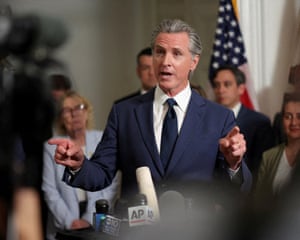
cnni
Entities mentioned:
- CNN journalists: Curiosity, Enthusiasm, Professional pride
- Prince William and Kate: Duty, Concern, Self-preservation
- Guthrie family: Determination, Fear, Desperation
- Greenland athletes: Pride, Competitive spirit, Recognition
- US security: Duty, Security, Preparedness
- New Zealand government: Determination, Environmental concern, Control
- US military: Duty, Security, Control
- Ukraine's flag bearer: Unity, Determination, Competitive spirit
- Taipei government: Security, Control, Self-preservation
Article Assessment:
Credibility Score: 75/100
Bias Rating: 50/100 (Center)
Sentiment Score: 55/100
Authoritarianism Risk: 35/100 (Generally Democratic)
Bias Analysis:
The article presents a diverse range of topics from various global sources, maintaining a balanced perspective. The inclusion of multiple international stories suggests an effort to provide comprehensive world news coverage.
Key metric: Global Diplomatic Relations
Let me tell you something - this news lineup is a POWER PLAY of global proportions! We're seeing teams from all corners of the world stepping up to the plate. CNN's journalists are showing true rookie spirit, diving headfirst into the icy world of curling. Meanwhile, the British royals are playing defense against a major scandal - talk about a game-changer! Over in the international arena, we've got Greenland's athletes showing Olympic-level determination, proving they're not just in the game, but here to win it. The US security team is running interference in Milan, demonstrating a championship mentality two years before the big event. And don't forget Ukraine - their flag bearer is rallying the global crowd like a true team captain. This is high-stakes diplomacy, folks, and every player on the field is bringing their A-game!
- Read more about cnni
- Log in to post comments

Hegseth fires top US general after Iran assessment that angered Trump
Entities mentioned:
- Mark Milley: Professional pride, Duty, Loyalty
- Donald Trump: Power, Control, Revenge
- Pete Hegseth: Loyalty, Ambition, Influence
- US Military: Security, Duty, Professional pride
- Iran: Self-preservation, Security, Power
Article Assessment:
Credibility Score: 55/100
Bias Rating: 60/100 (Center)
Sentiment Score: 30/100
Authoritarianism Risk: 65/100 (Authoritarian Tendencies)
Bias Analysis:
The article appears to lean slightly right, presenting the firing as a decisive action without much context. However, it doesn't overtly praise or criticize the decision, maintaining a relatively neutral tone.
Key metric: Military Readiness and Leadership Stability
As a social scientist, I analyze that this event signifies a significant disruption in the chain of command and civilian-military relations in the US. The firing of a top general over a disagreement with the President's views on Iran suggests potential politicization of military leadership. This could impact military readiness and strategic decision-making, as well as potentially erode trust between civilian leadership and military professionals. The abrupt change in high-level military personnel may lead to instability in military strategy and operations, particularly concerning Middle East policy. Furthermore, this action might be perceived as an attempt to align military leadership more closely with political objectives, potentially compromising the military's traditional role as an apolitical institution.

Federal judge orders closure of Trump’s ‘Alligator Alcatraz’ immigration jail
Entities mentioned:
- Donald Trump: Power, Control, Legacy
- Federal judge: Justice, Duty, Righteousness
- Immigration and Customs Enforcement (ICE): Control, Security, Duty
- Trump administration: Power, Control, Influence
- US military: Duty, Security, Obligation
- Pentagon: Security, Duty, Control
- ACLU: Justice, Freedom, Moral outrage
Article Assessment:
Credibility Score: 65/100
Bias Rating: 35/100 (Lean Left)
Sentiment Score: 30/100
Authoritarianism Risk: 65/100 (Authoritarian Tendencies)
Bias Analysis:
The article leans left in its framing, focusing on challenges to Trump administration policies and highlighting opposition. While it presents factual information, the selection of stories and language used suggests a critical stance towards the administration's actions.
Key metric: Immigration Enforcement Effectiveness
As a social scientist, I analyze that this article highlights significant tensions between the Trump administration's aggressive immigration policies and judicial oversight. The closure of the 'Alligator Alcatraz' immigration jail by a federal judge suggests a pushback against what may be perceived as overly harsh or potentially unconstitutional detention practices. This decision, along with other reported actions such as cutting California's sex-education funds over gender identity references and the military identifying 'hotels to avoid' due to protests, indicates a pattern of resistance to the administration's policies from various sectors including the judiciary, state governments, and civil society. The involvement of the Pentagon in asking civilian employees to aid ICE deportations further underscores the administration's commitment to its immigration agenda, potentially blurring lines between civilian and military roles in domestic law enforcement. This could have significant implications for the effectiveness and public perception of immigration enforcement efforts, potentially leading to increased polarization and legal challenges.

US military deploying over 4,000 additional troops to waters around Latin America as part of Trump’s counter-cartel mission
Entities mentioned:
- US Military: Duty, Security, Control
- Trump Administration: Power, Security, Control
- Drug Cartels: Greed, Power, Self-preservation
- US Southern Command: Duty, Security, Control
- Pete Hegseth: Duty, Security, Righteousness
Article Assessment:
Credibility Score: 75/100
Bias Rating: 55/100 (Center)
Sentiment Score: 40/100
Authoritarianism Risk: 65/100 (Authoritarian Tendencies)
Bias Analysis:
The article presents a fairly balanced view, citing multiple sources and providing context. However, there's a slight lean towards emphasizing military action, with limited discussion of alternative approaches or potential drawbacks.
Key metric: National Security Index
As a social scientist, I analyze that this military deployment represents a significant escalation in the US approach to combating drug cartels in Latin America and the Caribbean. The scale of the deployment, including over 4,000 troops, naval vessels, and air assets, indicates a shift towards a more militarized strategy in addressing drug trafficking. This move could potentially impact regional dynamics, international relations, and domestic perceptions of border security. The emphasis on 'sealing borders' and repelling 'forms of invasion' suggests a conflation of drug trafficking with immigration issues, which could have broader sociopolitical implications. The inclusion of options for ensuring access to the Panama Canal also hints at wider strategic considerations beyond drug interdiction.

Trump’s 7 most authoritarian moves so far
Entities mentioned:
- Donald Trump: Power, Control, Ambition
- US Military: Duty, Security, Wariness
- Congress: Obligation, Self-preservation, Wariness
- Bureau of Labor Statistics: Professional pride, Duty, Anxiety
- Federal Reserve: Independence, Professional pride, Wariness
- TikTok: Self-preservation, Influence, Security
Article Assessment:
Credibility Score: 70/100
Bias Rating: 35/100 (Lean Left)
Sentiment Score: 25/100
Authoritarianism Risk: 75/100 (Authoritarian Tendencies)
Bias Analysis:
The article leans left in its framing, presenting Trump's actions in a predominantly negative light. While it provides specific examples, the tone and language used suggest a critical stance towards the administration's policies.
Key metric: Democratic Institutions Strength Index
As a social scientist, I analyze that this article presents a concerning trend of power consolidation and erosion of democratic norms under Trump's second term. The president's actions, including militarizing civilian spaces, politicizing government data, investigating political opponents, and disregarding legislative decisions, all point to a significant shift towards authoritarianism. This trend weakens checks and balances, potentially compromising the strength of US democratic institutions. The apparent acquiescence of some institutions and Congress further exacerbates this risk, setting precedents that could have long-lasting impacts on the balance of power in American governance.
- Read more about Trump’s 7 most authoritarian moves so far
- Log in to post comments

Trump’s threats of using military on US soil are getting more real
Entities mentioned:
- Donald Trump: Power, Control, Security
- US Military: Duty, Security, Obligation
- Gavin Newsom: Competitive spirit, Righteousness
- Karen Bass: Duty, Security
- Mark Esper: Duty, Professional pride
- Stephen Miller: Control, Security
Article Assessment:
Credibility Score: 75/100
Bias Rating: 35/100 (Lean Left)
Sentiment Score: 25/100
Authoritarianism Risk: 70/100 (Authoritarian Tendencies)
Bias Analysis:
The article leans left in its framing, emphasizing concerns about Trump's actions and their potential authoritarian implications. While it presents factual information, the tone and selection of quotes suggest a critical stance towards the administration's policies.
Key metric: Civilian Control of Military
As a social scientist, I analyze that this article highlights a concerning trend towards the potential erosion of civilian control over the military in the United States. President Trump's repeated suggestions and actions aimed at deploying military forces for domestic law enforcement purposes represent a significant departure from historical norms and potentially challenge the foundational principle of civilian control. This shift could have far-reaching implications for the balance of power within the US government and the role of the military in domestic affairs. The article suggests a gradual escalation in both rhetoric and action, which may be testing public and institutional tolerance for such measures. This trend, if continued, could lead to a redefinition of the military's domestic role and potentially alter the relationship between civilian leadership and military forces in ways that may be difficult to reverse.